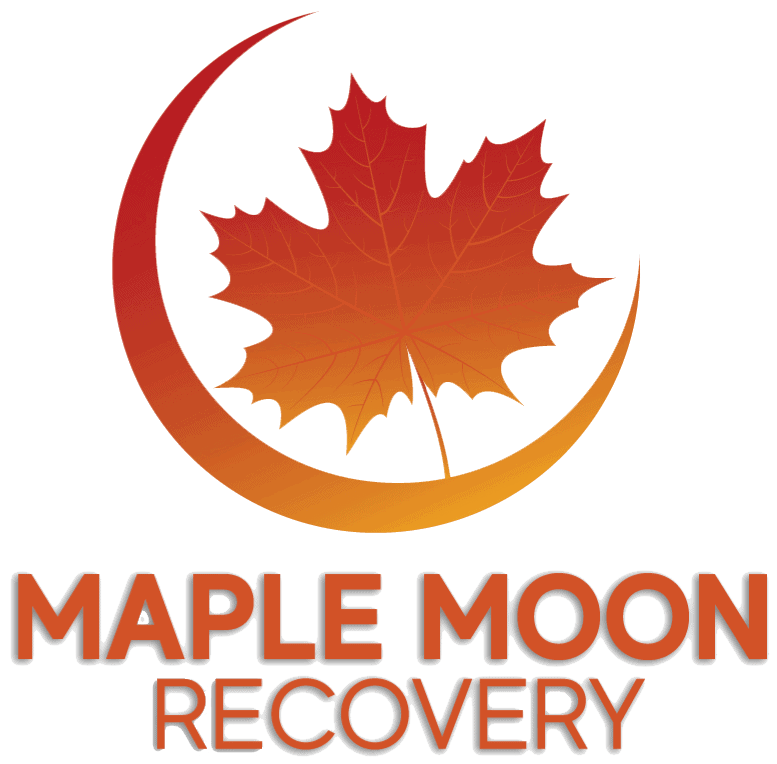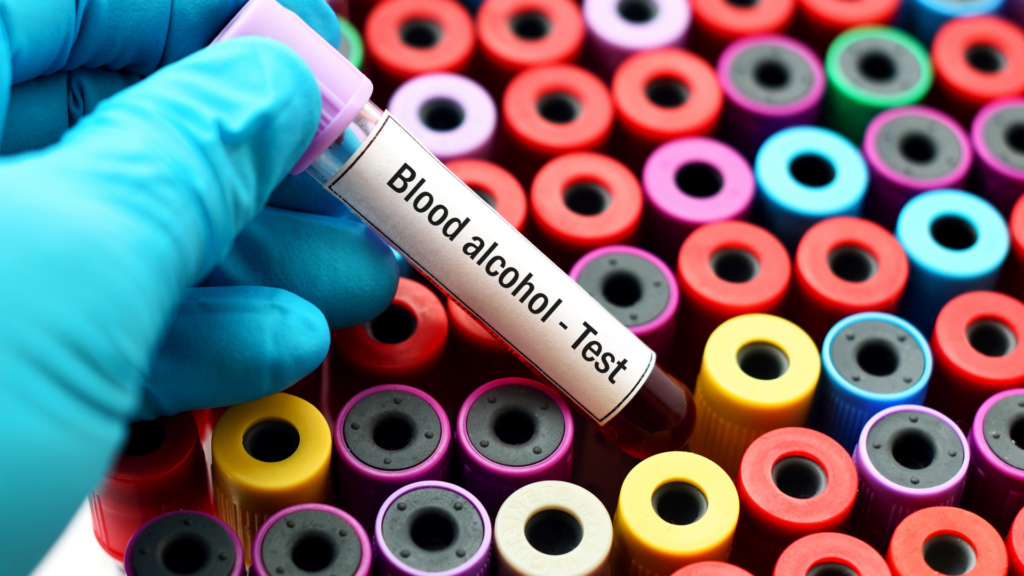Key Takeaways
- Understanding Alcohol in the Bloodstream: The article explains how alcohol is absorbed and processed in the bloodstream, with the liver playing a crucial role in metabolizing alcohol.
- Importance of Timing in Blood Tests: The accuracy of blood alcohol testing is highly dependent on timing, and there is a specific window during which these tests are most effective.
- Types of Blood Tests for Alcohol Detection: The article outlines different blood tests for detecting alcohol abuse, including indirect biomarkers such as Carbohydrate-Deficient Transferrin (CDT) and direct biomarkers like Phosphatidyl Ethanol (PEth).
- Health Consequences of Heavy Drinking: Heavy alcohol consumption has detrimental effects on both physical and mental health, impacting the nervous system, liver, and psychological well-being.
- Holistic Approach to Treatment: Maple Moon Recovery adopts a holistic approach to treating alcohol use disorder, focusing on the whole person and addressing underlying issues.
- Personalized Treatment Plans: Maple Moon Recovery emphasizes the importance of personalized treatment plans tailored to the specific needs and goals of each individual.
- Inpatient Treatment Programs: For those requiring a more structured environment, Maple Moon Recovery offers inpatient treatment programs with 24/7 medical supervision.
- Maple Moon Recovery’s Comprehensive Services: Maple Moon Recovery provides a range of services including medical detoxification, therapy, counseling, nutritional guidance, and aftercare planning.
- Getting Started with Maple Moon Recovery: The article provides contact information for Maple Moon Recovery and encourages individuals struggling with alcohol use disorder to take the first step towards recovery by reaching out for help.

Alcohol abuse is a widespread issue that affects millions of individuals and families across the globe. With its social acceptance and easy accessibility, alcohol can often be a silent predator, creeping into the lives of individuals and sometimes taking a heavy toll on their health and well-being. One of the key tools in identifying and managing heavy drinking is blood testing. Blood tests can provide critical information about the amount of alcohol consumed and the impact it is having on the body.
At Maple Moon Recovery, we understand the importance of comprehensive care for individuals struggling with alcohol-related issues. Our commitment goes beyond just treatment; it’s about educating individuals on the importance of understanding their own health and how alcohol can affect it. In this article, we will delve into the science behind blood testing for alcohol, discuss its accuracy, and explore the different types of blood tests available.
Additionally, we will touch on the health implications of heavy drinking and how Maple Moon Recovery’s dedicated services can help individuals on their journey to recovery. Whether you are seeking information for yourself or a loved one, this article aims to provide valuable insights into the role of blood tests in identifying and managing heavy alcohol consumption.
The Science Behind Blood Testing for Alcohol
Understanding how alcohol affects the body and how it is processed is crucial for interpreting blood test results. In this section, we will delve into the science behind blood testing for alcohol, focusing on how alcohol is absorbed, the role of the liver, and the significance of ethanol levels.
How Alcohol is Absorbed and Processed in the Bloodstream
When you consume an alcoholic beverage, the alcohol (ethanol) quickly enters your bloodstream through the walls of your stomach and small intestine. The rate at which alcohol is absorbed can be influenced by several factors, including the presence of food in the stomach, the concentration of alcohol in the beverage, and individual differences in metabolism.
Once in the bloodstream, alcohol travels to the brain, where it affects the central nervous system and impairs cognitive functions and motor skills. The bloodstream also carries alcohol to the liver, where it is metabolized and broken down into other substances.
The Role of the Liver in Processing Alcohol
The liver plays a central role in processing alcohol. It is the primary organ responsible for metabolizing ethanol through a series of chemical reactions. The liver uses enzymes, primarily alcohol dehydrogenase (ADH), to break down ethanol into acetaldehyde, a toxic substance. Acetaldehyde is then further broken down into acetate by another enzyme called aldehyde dehydrogenase (ALDH). Finally, acetate is converted into carbon dioxide and water, which are eliminated from the body.
The liver can only process a certain amount of alcohol per hour. Consuming alcohol at a rate faster than the liver can metabolize it leads to an increase in blood alcohol concentration (BAC), which can have harmful effects on the body.

The Accuracy and Timing of Blood Tests
When it comes to blood testing for alcohol, timing is a critical factor that can significantly affect the accuracy of the results. Understanding how the timing of the test, the window of effectiveness, and the variability of blood alcohol levels interplay is essential for interpreting the results accurately. In this section, we will explore these aspects in detail.
How Timing Affects the Accuracy of Blood Alcohol Testing
The concentration of alcohol in the blood changes over time as the body absorbs and metabolizes it. Taking a blood test too soon after drinking may not give the alcohol enough time to enter the bloodstream, resulting in a lower reading than the actual amount consumed. Conversely, taking the test too late may result in a lower concentration as the liver metabolizes the alcohol.
Additionally, the rate at which alcohol is absorbed and metabolized can vary based on factors such as body weight, metabolism, the presence of food in the stomach, and the type of alcoholic beverage consumed. This makes the timing of the blood test crucial for accurate results.
The Window of Time in Which Blood Tests are Most Effective
Blood tests are most effective in detecting alcohol within a short window of time after consumption. Typically, alcohol can be detected in the blood within minutes of consumption, and its concentration peaks at around 30 to 90 minutes after drinking. The liver then begins to metabolize the alcohol, and its concentration decreases.
For most individuals, a blood test can effectively detect alcohol for up to 6 hours after consumption. However, this window can vary based on the factors mentioned earlier.
The Variability of Blood Alcohol Levels
Blood alcohol levels can be highly variable, even among individuals who have consumed the same amount of alcohol. This variability is due to differences in how individuals absorb and metabolize alcohol. Factors such as body weight, gender, age, liver function, and the rate of consumption can all affect blood alcohol levels.
Moreover, the type of alcoholic beverage and its alcohol content can also contribute to the variability. For example, hard liquors with higher alcohol content can result in a quicker rise in blood alcohol levels compared to beers or wines.
In conclusion, the accuracy and timing of blood tests for alcohol are interdependent and influenced by various factors. Understanding these aspects is essential for both individuals and healthcare professionals in interpreting the results accurately and making informed decisions.
Ethanol Levels and What They Indicate
Ethanol levels in the blood are measured to determine the amount of alcohol in a person’s system. This measurement is often referred to as blood alcohol concentration (BAC) and is usually expressed as a percentage. For example, a BAC of 0.08% means that there are 0.08 grams of alcohol per 100 milliliters of blood.
Different BAC levels are associated with varying degrees of impairment:
- 0.02-0.03%: Slight impairment, relaxed feeling.
- 0.04-0.06%: Feeling of well-being, lowered inhibitions.
- 0.07-0.09%: Impaired judgment and motor skills.
- 0.10-0.125%: Significant impairment of motor control.
- 0.13-0.15%: Likely to appear visibly drunk, major impairment of motor control.
- Above 0.16%: Severe impairment or alcohol poisoning, which can be life-threatening.
Understanding the science behind blood testing for alcohol is essential for both individuals and healthcare professionals. It helps in making informed decisions regarding alcohol consumption and provides critical information for the treatment and management of alcohol-related conditions.
Types of Blood Tests for Detecting Alcohol Abuse
Detecting alcohol abuse requires a comprehensive approach that involves various types of blood tests. These tests can be categorized into indirect and direct biomarkers. Each type of test provides different information about alcohol consumption and its effects on the body. In this section, we will delve into the types of blood tests used for detecting alcohol abuse and help you understand what the results indicate.
Indirect Biomarkers
Indirect biomarkers do not measure alcohol itself but rather the effects of alcohol on the body, particularly the liver and blood cells.
Carbohydrate-Deficient Transferrin (CDT)
Carbohydrate-Deficient Transferrin (CDT) is a blood test that measures a specific type of transferrin, a protein that transports iron in the blood. Chronic alcohol consumption can alter the transferrin molecules, increasing the levels of CDT. Elevated CDT levels can be an indicator of heavy alcohol consumption over an extended period.
Liver Function Test (LFT)
The Liver Function Test (LFT) is used to assess the health of the liver by measuring various enzymes and proteins in the blood. Since the liver is responsible for metabolizing alcohol, excessive alcohol consumption can cause liver damage, which is reflected in abnormal LFT results. Common markers in LFT include Alanine Aminotransferase (ALT), Aspartate Aminotransferase (AST), and Gamma-Glutamyl Transferase (GGT).
Full Blood Count (Mean Corpuscular Volume – MCV)
The Full Blood Count, specifically the Mean Corpuscular Volume (MCV), measures the average size of red blood cells. Chronic alcohol use can cause the red blood cells to enlarge, which is reflected in an increased MCV. This test is often used in conjunction with other tests to provide a more comprehensive view of alcohol’s impact on the body.
Direct Biomarkers
Direct biomarkers measure substances that are directly related to alcohol consumption.
Phosphatidyl Ethanol (PEth)
Phosphatidyl Ethanol (PEth) is a direct biomarker that measures a specific type of phospholipid produced in the presence of alcohol. PEth levels can indicate recent alcohol consumption, even if the alcohol has already been metabolized. This makes it a highly sensitive and specific test for detecting alcohol consumption.

Understanding the Results and What They Indicate
Interpreting the results of blood tests for alcohol abuse requires an understanding of the biomarkers and what they indicate. Elevated levels of CDT, abnormal LFT results, and increased MCV can suggest chronic alcohol consumption and its effects on the liver and blood cells. On the other hand, elevated PEth levels are indicative of recent alcohol consumption.
It’s important to note that these tests should be used in conjunction with a comprehensive assessment by a healthcare professional. At Maple Moon Recovery, our team of experts is dedicated to providing thorough assessments and personalized care for individuals dealing with alcohol use and its effects. Through accurate testing and understanding, we aim to empower individuals on their journey towards recovery and well-being.
The Health Implications of Heavy Drinking
Heavy drinking has far-reaching consequences on an individual’s health. It affects various systems in the body, including the nervous system, and has both physical and psychological implications. In this section, we will explore the health implications of heavy drinking and how it impacts different aspects of an individual’s well-being.
The Effects of Alcohol on the Nervous System
Alcohol is a depressant, which means it slows down the functions of the central nervous system. Initially, this can cause relaxation and a decrease in inhibitions. However, with heavy drinking, the effects on the nervous system become more severe. These effects include:
- Impaired Coordination and Reaction Time: Alcohol affects the brain’s ability to coordinate movement and slows reaction time, increasing the risk of accidents and injuries.
- Memory Impairment: Heavy drinking can lead to blackouts and memory lapses. Over time, chronic alcohol abuse can cause permanent damage to the brain and contribute to memory disorders.
- Neuropathy: Chronic alcohol consumption can damage the nerves, leading to a condition known as alcoholic neuropathy, which causes pain, tingling, and numbness in the extremities.
The Physical Health Consequences of Heavy Alcohol Consumption
Heavy alcohol consumption takes a toll on the body and can lead to various physical health issues, including:
- Liver Damage: The liver is responsible for processing alcohol, and excessive drinking can lead to liver inflammation, fatty liver, alcoholic hepatitis, and eventually cirrhosis.
- Heart Problems: Heavy drinking increases the risk of high blood pressure, irregular heartbeat, cardiomyopathy, and stroke.
- Digestive Issues: Alcohol irritates the lining of the stomach and can cause gastritis, ulcers, and increase the risk of developing pancreatitis.
- Weakened Immune System: Chronic alcohol abuse weakens the immune system, making the body more susceptible to infections.
Psychological Effects of Alcohol Abuse
In addition to physical health consequences, heavy drinking has psychological effects, including:
- Depression and Anxiety: There is a strong link between alcohol abuse and mental health disorders such as depression and anxiety.
- Impaired Judgment and Risky Behavior: Alcohol impairs judgment and lowers inhibitions, which can lead to risky behavior and poor decision-making.
- Alcohol Dependence and Addiction: Chronic heavy drinking can lead to physical dependence on alcohol and the development of an alcohol use disorder.
Understanding the health implications of heavy drinking is crucial for recognizing the importance of moderation and seeking help when necessary. At Maple Moon Recovery, we are committed to helping individuals understand the effects of alcohol on their health and providing the support needed to address alcohol-related issues. Through education, counseling, and comprehensive care, we empower individuals to make informed decisions about their health and take steps toward recovery.

How Maple Moon Recovery Can Help
At Maple Moon Recovery, we understand the complexities of alcohol use disorder and the toll it takes on an individual’s physical and mental health. Our dedicated team is committed to providing comprehensive and personalized care to individuals struggling with alcohol abuse. In this section, we will explore the services offered by Maple Moon Recovery and how our holistic approach can help individuals on their journey to recovery.
Introduction to Maple Moon Recovery’s Services for Individuals with Alcohol Use Disorder
Maple Moon Recovery offers a range of services designed to address the unique needs of individuals with alcohol use disorder. Our services include detoxification, individual and group therapy, family counseling, nutritional guidance, and aftercare planning. We focus on treating the whole person, not just the symptoms of alcohol abuse.
The Holistic Approach to Treating Alcohol Abuse at Maple Moon Recovery
Our holistic approach encompasses various aspects of an individual’s well-being. We believe that recovery from alcohol abuse involves more than just abstaining from alcohol; it requires addressing underlying issues, improving physical health, and building coping skills. Our holistic approach includes:
- Therapy and Counseling: Our therapists work with individuals to address underlying psychological issues that contribute to alcohol abuse.
- Physical Health: We provide nutritional counseling and physical activities to improve physical health and well-being.
- Mindfulness and Stress Reduction: Through mindfulness practices and stress reduction techniques, we help individuals manage cravings and reduce anxiety.
The Importance of Personalized Treatment Plans
At Maple Moon Recovery, we recognize that each individual’s journey to recovery is unique. Our personalized treatment plans are tailored to meet the specific needs and goals of each client. Through an initial assessment, we work with individuals to develop a treatment plan that aligns with their recovery goals.
Inpatient Treatment Programs at Maple Moon Recovery
For individuals who require a structured and supportive environment, Maple Moon Recovery offers inpatient treatment programs. Our inpatient programs provide 24/7 medical supervision, a structured daily schedule, therapy sessions, and a supportive community. This setting allows individuals to focus entirely on their recovery without the distractions and triggers of everyday life.
How to Get Started with Maple Moon Recovery
If you or a loved one is struggling with alcohol use disorder, Maple Moon Recovery is here to help. Our compassionate team is ready to support you on your journey to recovery. To learn more about our services or to get started with a personalized alcohol abuse treatment plan, please contact us today!
Your path to a healthier and more fulfilling life begins with the first step. Let Maple Moon Recovery be your guide on this journey to recovery.




